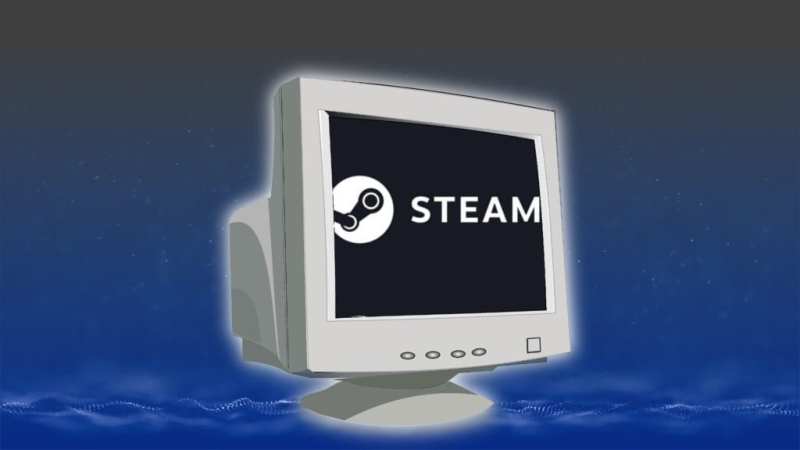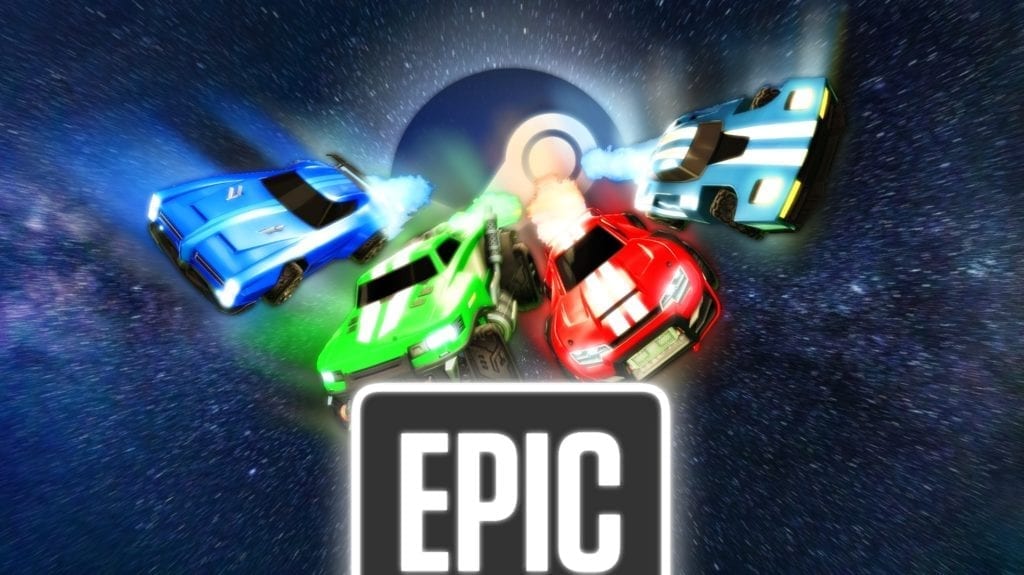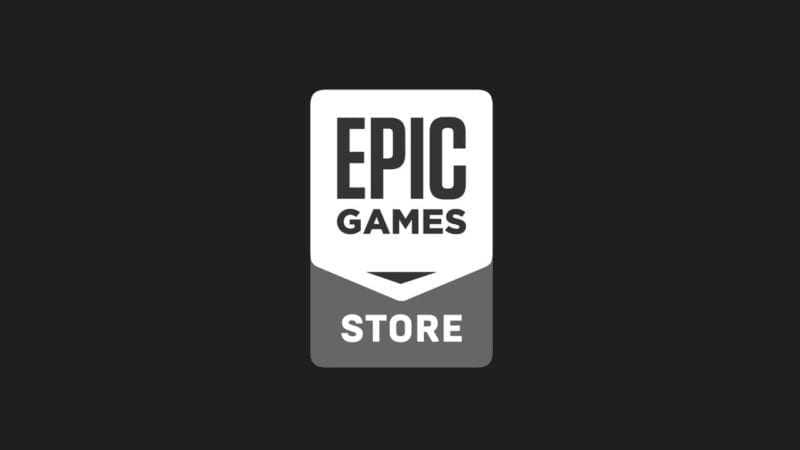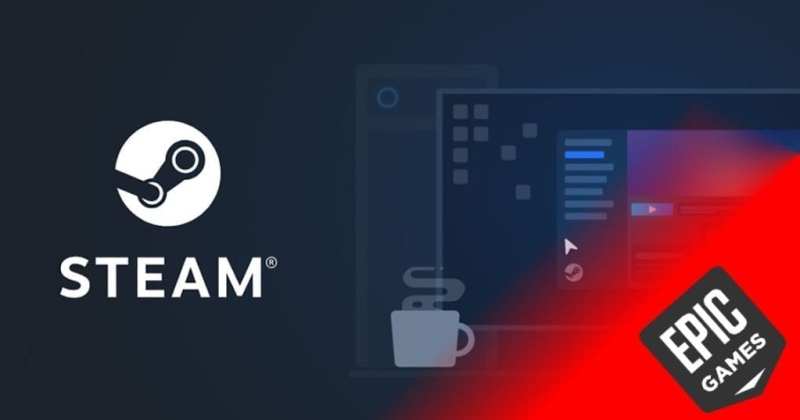The PC gaming realm was rocked a few days ago with the sudden announcement of Psyonix being purchased by Epic Games. Its prime project, Rocket League, continues to be one of the largest games on the market despite its age, this news came as a blow to a lot of fans, especially due to what it means for Steam users. While neither Psyonix nor Epic has yet come out with a definitive statement, it does seem highly likely that once the game is brought over to the Epic Games Store in “late 2019”, the writing will be on the wall for the Steam edition.
This move by Epic is one of many made in recent months that have increasingly angered PC gamers. Typing in “Epic Games Store” on Google will lead you mostly to articles and videos about why so many hate the service. Yet despite the deluge of negativity, Epic clearly shows no signs of backing down.
While the Epic Games Store is one of many digital game distribution centers on PC, it has become the most controversial for one clear reason: it is extremely aggressive. Hence the title of this article. Epic has pretty much tried to initiate a hostile takeover of the PC gaming market with its new store.
This is quite different than what other companies have done. Services like Ubisoft’s Uplay and EA’s Origin haven’t received anywhere near the same amount of flack due to them acting as more of compliments to Steam rather than outright competitors. Ubisoft and EA built those stores to have a dedicated place to sell their games without exclusively needing Steam. Ubisoft even continues to sell its games on Steam, which proves that it still recognizes and bends to the sheer size of Valve’s service.
The History Of Steam
Steam’s rise to power was an interesting one. It started in 2003 and gradually expanded over the years to become the unofficial hub of PC gaming. While PC gaming has been a thing for decades, for a long time consoles were really where gamers found most of the bread-and-butter in the gaming industry. Even Microsoft abandoned PC gamers for several years after getting its Xbox platform off the ground. Steam came in at just the right time, under just the right circumstances.

Steam came in at just the right time in the early 2000s when PC gaming and the Internet were on the rise.
Technology was advancing at a very fast rate during the early 2000s, including the adoption of home PCs and the Internet. As machines got better and the Internet became more popular, services like Steam became the ‘new hotness.’ Since the PC gaming market was more niche than mainstream at the time, Steam captured the attention of the userbase relatively easily; after all, there wasn’t much competition. As PC gaming gradually rose in popularity, Steam grew along with it. Fast-forward to now, and PC gaming is the best and biggest it has ever been. And, right at the center of it all, Steam stands as the number one marketplace for PC games. It currently hosts a population of over 1 billion registered users, 90 million of which are active monthly.
Since Steam has become such a giant behemoth, developers and publishers have simply rolled with it. While physical games remain relatively popular on consoles, most PC gamers have switched to being all-digital due to Steam’s size. Steam hosts thousands upon thousands of games from companies both large and small. With that being the case, some users find browsing through its selection to be overwhelming. The consistent influx of new content leads to Steam burying most games, especially those from small indie teams. Occasionally, an indie game will strike gold and find massive word-of-mouth promotion, but this certainly doesn’t happen to every game. This is where Valve’s 30% cut really hurts, as little indies that are already having a hard time making anything are eclipsed mainly by large AAA productions that already have massive budgets and a more sales potential.
Nevertheless, Steam remains the prime marketplace to release these games on. So, all companies alike simply suck it up and work with it. By extension, most PC gamers have essentially been locked in for the very same reason: there’s hardly any other place to go. That’s why Epic’s boldness has received so much push back, at least partly.
The Rise Of Epic
Just as how there are groans about needing to go through Uplay, Origin, and even the Microsoft Store, having to go through the Epic Games Store is seen as another annoyance due to it not being Steam. But, again, it’s belittled even more so than the others. While Epic has been trying to bully its way to the top through acquisitions like the Psyonix deal, it’s still offering a very inferior product.
There are many features Steam has which the Epic Games Store currently does not, such as controller support, user profiles, regional game prices, and cloud saves. The Epic Games Store is also online-only, which is a very big disadvantage. A lot of these features are considered to be industry-standard, so many PC gamers see the lack of them as laughable. Yet. Epic continues to aggressively try to inflate their service.
Trying to buy out the competition is certainly not a good move ethically, but let’s not forget the age-old phrase: “It’s simply business.” While Epic does offer a larger percentage cut of profits for publishers (88% versus Steam’s 30%), its aggressive tactics are not being backed up by anything innovative.
Competition Vs. Chaos
Attempting to create genuine competition is great, as that leads to creativity. Close competitors usually try to capture the market by undercutting and one-upping one another with tactics that end up benefiting the consumer. That’s why we see situations like PlayStation 4 launching at $400 versus Xbox One’s $500. But sometimes competition creates a bit of chaos.
That’s what seems to be brewing in the streaming industry. Much like Steam, Netflix went uncontested as the ‘hub’ for streaming for years. And, again like Steam, the success of Netflix led other companies to try and capture a piece of the pie with their own services. Now, there’s a variety of options like Hulu, Prime Video, and the upcoming Disney+. As YouTube channel “Cheddar” points out in their video on the matter, this has made things chaotic due to people having to pay a variety of subscription fees to gain access to each service’s exclusive content.
It’s also the same argument some console gamers make. If one wants access to every console game, they have to buy each manufacturer’s specific system. Some folks don’t want to do that, while others simply cannot afford it. Until recently, the PC gaming market avoided these pitfalls. But now, it’s starting to become just like consoles and streaming services: fragmented.
Coercive Tactics
The one key difference between those markets and the PC gaming market is that Steam and the other services are all free. So, the only real extra burden put on customers is having another service installed on their machine. Realistically, that’s not a big deal. But, again, Epic isn’t exactly helping to make it look simple. As long as its service is dramatically inferior, PC gamers will continue to be unhappy. But, there’s not much of a chance that Epic is going to try and stop making it grow.
The amount of money Epic handed over to Psyonix for the deal remains undisclosed, but it likely involved quite a number of zeros. On PC, Rocket League has already sold somewhere in the realm of 5 to 10 million copies and continues to make money through its huge esports presence, DLC and microtransactions. So, not only does it continue to make money, but as mentioned earlier, it’s still a very popular game. It’s actually consistently one of the most played top 10 played games every day on Steam.
How the move to the Epic Games Store will affect this engagement is unclear, but it does at least show that Epic seeks to basically force users onto its service. Should they take such a hot item away from Steam, a decent flock of users will probably follow after it, whether they actually want to or not. Thus, Epic will likely continue to make moves like this with other games, primarily new ones.
How To Respond?
Steam is still the much bigger contender here, so its parent company Valve is probably not immediately concerned. But, it no doubt has its eyes on Epic at this point. Eventually, Epic’s increasingly aggressive moves may very well twist Valve’s arm enough to start making bigger changes. Perhaps Valve may very well start matching Epic’s 88% profit cuts (or at the very least increasing the standard amount) and there might even be more frequent sales. Again, competition breeds creativity and Valve will be sure to protect its position.
But, when we keep seeing aggressive moves like this, it really makes one wonder: “Is the potential response from Valve even worth it?” If Epic can get its act together and actually produce a competent service, then perhaps. That will take some time, however, and Epic knows this. Hence why it’s trying to expedite the process by locking in as many deals as possible.
The only way for gamers to truly stick it to Epic would be to just not use the service. However, if it keeps grabbing popular titles and interesting new ones, consumers will have to choose: “To play, or not to play?” Naturally, one would want to play a game, but then that basically results in supporting a broken service. So, the better outcome is only a few people caving in. A boycott like that would certainly shake Epic up, but how likely is it? That remains to be seen.
(Other Sources for this Article):
Spawn Wave on YouTube: “Epic Games Just Took A Massive Shot At Steam”









Published: May 7, 2019 11:00 am